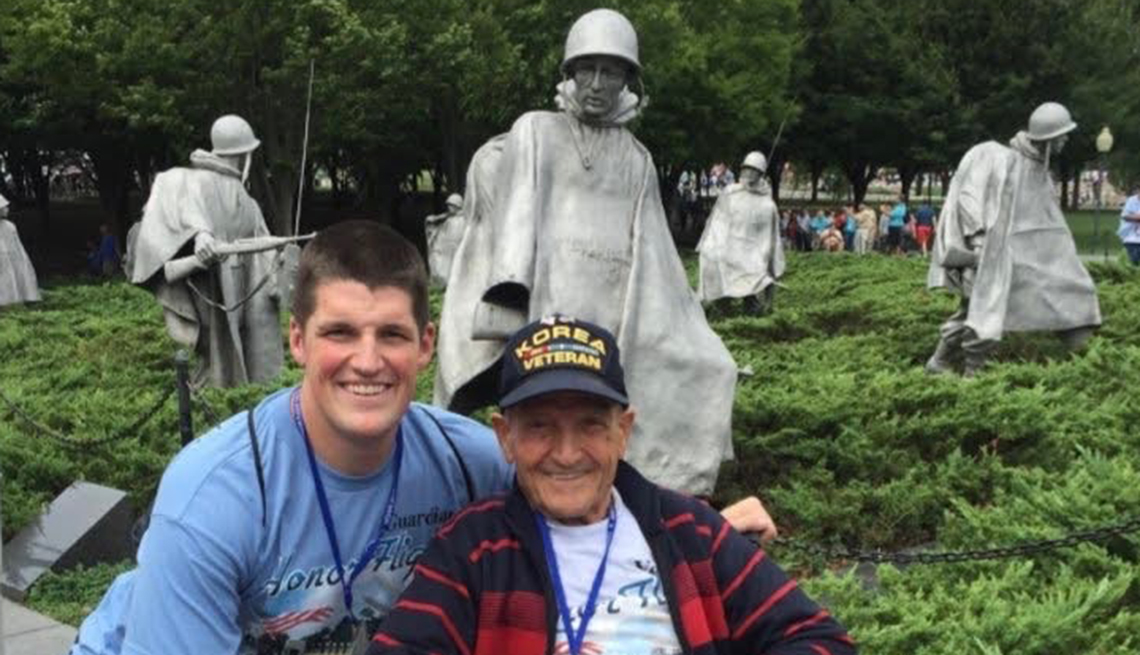An exclamation point on my grandfather’s service
- Select a language for the TTS:
- UK English Female
- UK English Male
- US English Female
- US English Male
- Australian Female
- Australian Male
- Language selected: (auto detect) - EN

Play all audios:

My grandfather John Ghizas — known to us as “Dedo,” Macedonian for grandfather — was a Greek immigrant drafted into the U.S. Army and shipped off to fight in the Korean War shortly after he
arrived in America. He started as a cook but was soon promoted to sergeant, leading men in combat. His experiences in foxholes shaped his philosophy of life. “If they tell you to dig one
hole, you dig two,” he would advise his grandchildren. Dedo is no longer with us — he died at 89 in 2017 — but before he left this world he was able to take an Honor Flight to Washington,
D.C., that was a capstone on his life and cemented his legacy for our family and future generations. My husband, Justin, is a former history teacher, and when he first met my grandfather the
two of them would dive into decades gone by. Justin got a firsthand account of what it was really like to see the Nazis invade Greece and to fight in Korea. Justin was surprised to learn
that Dedo had never been to Washington, D.C., and seen the memorials built there in honor of him and other veterans. History came to life for our whole family as they planned an Honor
Flight, on which Justin would be Dedo’s guardian. Dedo was 86 at the time and initially skeptical about the value of flying hours from Ohio to see some “statues.” But he soon started to
become excited about wearing his Korean War veteran’s hat and spending time with hundreds of fellow vets during the trip. John Ghizas during his service in the U.S. Army. Courtesy Alexandra
Frost His pride shone through. “Yep, this is what veterans do to be honored,” he told Justin. When they arrived at the memorials, crowds waiting in line moved aside and clapped as they
passed. Dedo was introspective as he approached the Korean War Veterans Memorial, taking in the 19 ghostlike stainless steel statues. “Typically he has a lot to say, and this time he
didn’t,” recalled Justin. “What makes that memorial so powerful is that it’s not a block of marble,” he said. “It’s made to look like the soldiers who were going through the field on patrol.
It’s eerie, and the faces seem unsure. You feel like an active participant with these men. That took Dedo back to that time when he was digging foxholes.”